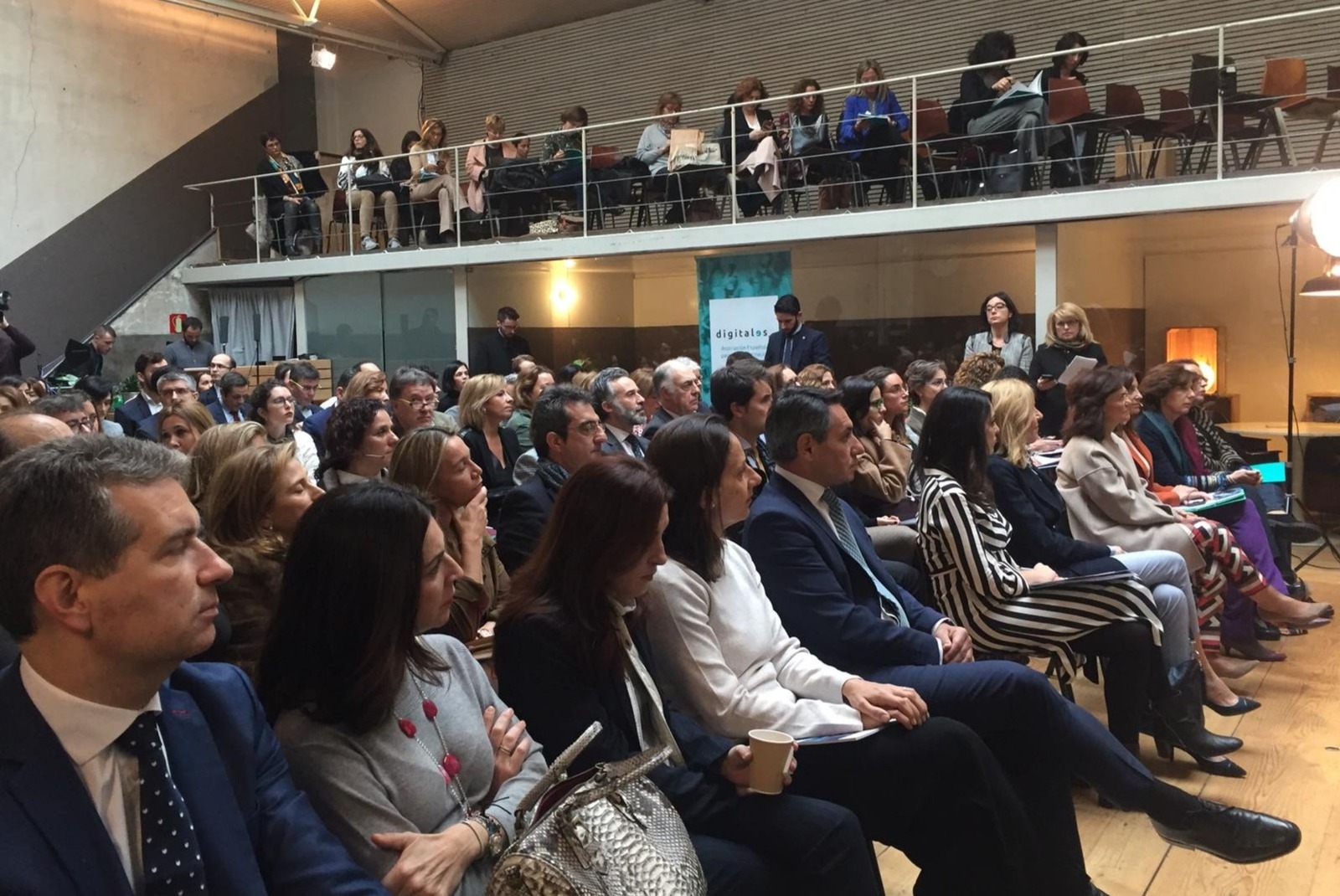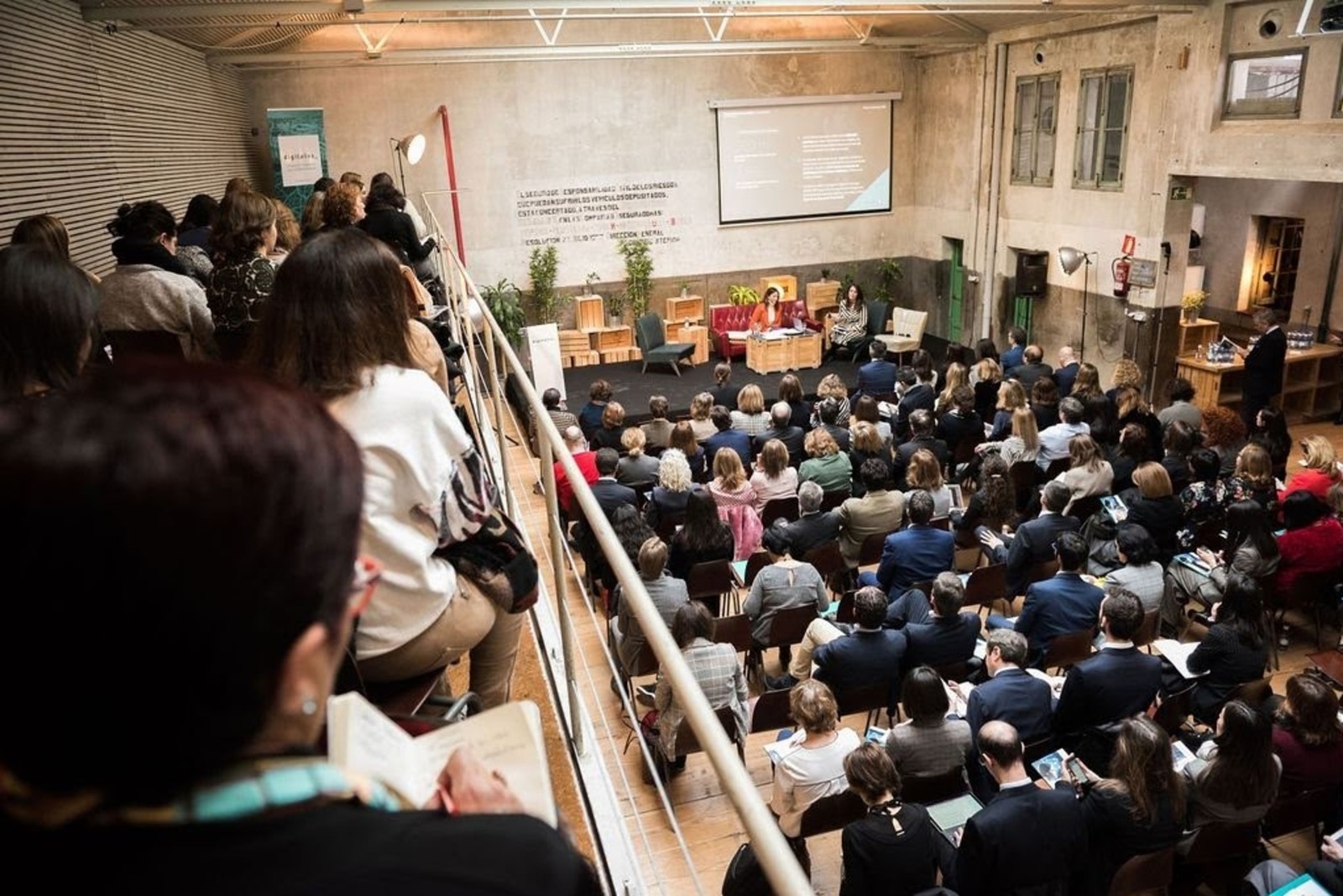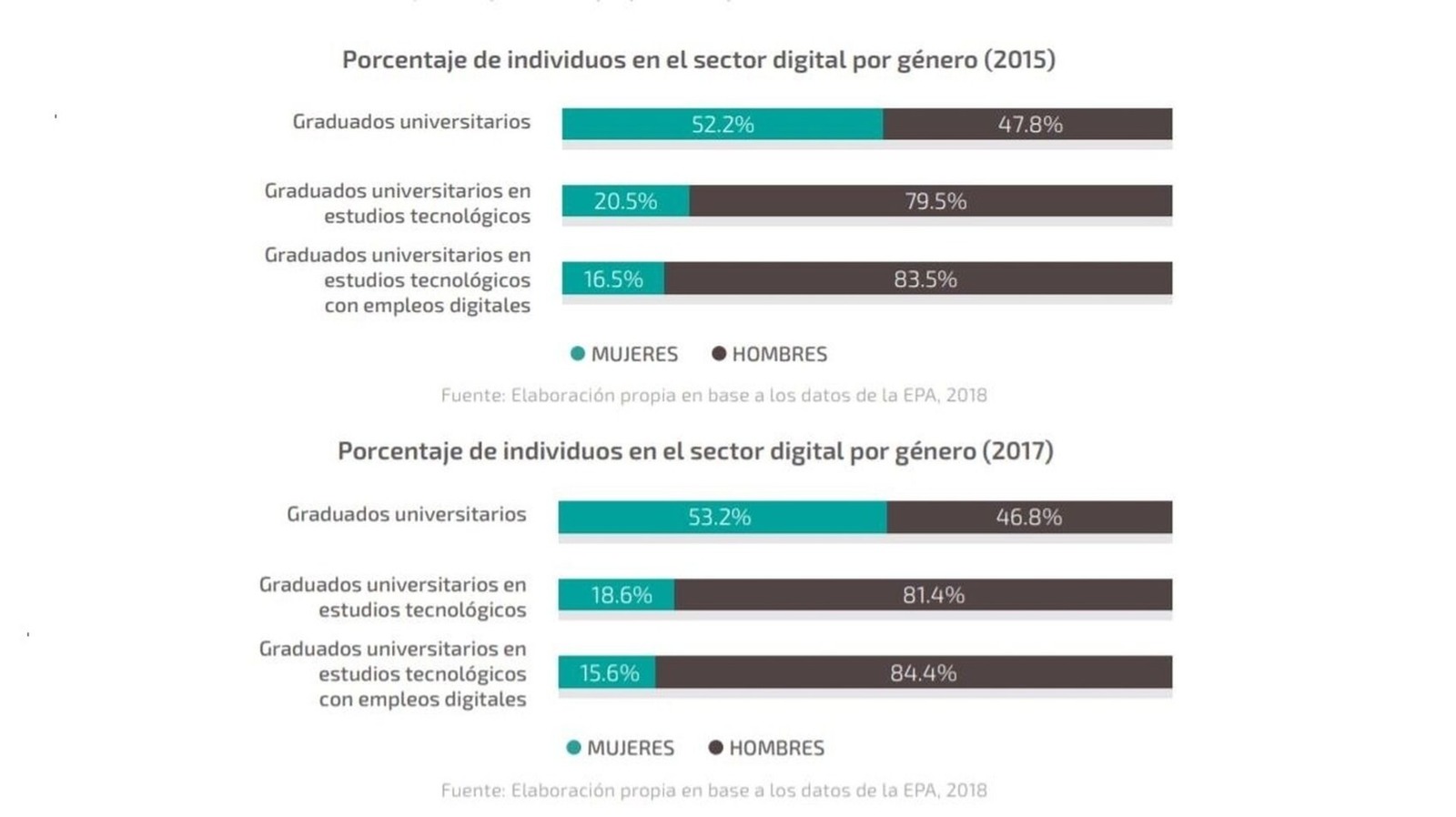24/01/2019
6. According to the European Commission, the participation of women in the digital labor market at the same level as men could generate an annual GDP increase of 9 trillion euros in the European economy.
7. Women in the ICT sector earn 3.1% more than women with similar characteristics in similar positions in other sectors, which is not the case for men.
Last Tuesday we presented the report Women in the digital economy in Spain 2018, prepared by the consulting firm Quanticae, chosen by the European Commission to carry out its report Women in the digital age and sponsored by different DigitalES partners: Altran, Huawei, Ericsson, EY and Orange.
The study puts a major conclusion on the table: the technology and digital sector suffers from a generalized talent recruitment problem, both in Europe and Spain, and in particular, women’s participation figures in the sector are falling.
How to translate these conclusions into figures? The main lines of the study are described in figures and graphs.
1. Only 3% of women graduates in higher education are in studies considered technological .
2. The wage gap is significantly smaller in the technology sector than in the rest of the sectors: 8.9% compared to 14.2% in the rest of the sectors.
3. Women in Spain suffer to a greater extent than men from job insecurity: they have higher unemployment rates, hold 74% of part-time jobs and suffer more from temporary employment, since, among other things, they sign 62% of permanent contracts.
4. 5.2% of all employed men are in jobs related to the technology and digital sector, while in the case of women this percentage is only 2%.
5. Only 15.6% of workers with a technical profile in the technology and digital sector are women.












